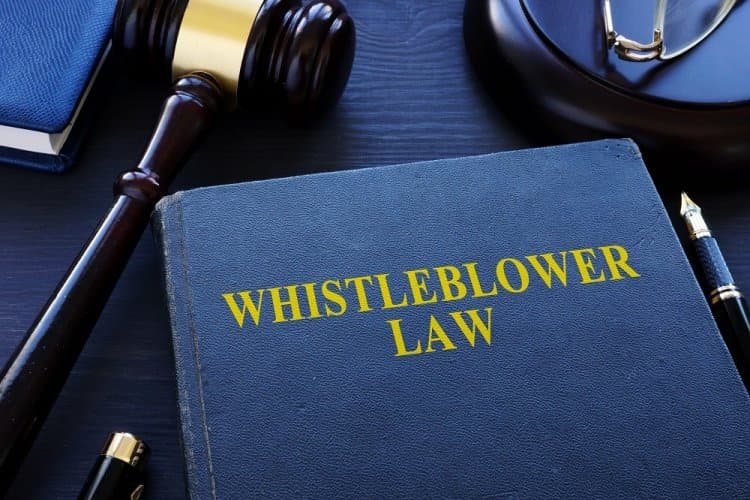
Whistleblower Protection Law in the UAE
"To see a wrong and not to expose it, is to become a silent partner to its continuance."
- Dr. John Raymond Baker
The term whistleblowing refers to the disclosure of certain facts (maybe confidential) as it generally exposes illegal or unethical practices in an organization. The federal laws of the UAE do not explicitly state the act of whistleblowing; however in most cases, such a disclosure is made by either an employee or an ex-employee of the organization/entity itself.
UAE’s First Step towards Whistleblower Protection
The Financial Crime Law (Dubai Law No. 4 of 2016) was proposed with the main purpose of curbing white-collar financial crimes like embezzlement, fraud, illegal funding to terrorist organizations, etc. by establishing the ‘Dubai Centre of Economic Security’.
Although it is the first statute that sought to provide a certain degree of protection to whistleblowers for the first time in UAE, further protection to whistleblowers is granted under Article 19 of the Financial Crime Law. It protects from law suits and disciplinary actions which might be taken by the entity/organization.
Pre-requisites to Avail Protection under this Law
- The disclosure of information must be true.
- The possibility of endangering the economic security of Dubai.
- The disclosure is made to the Dubai Center of Economic Security.
When all the three prerequisites are met, the person who exposes unethical/illegal activities will be protected against lawsuits that might be instigated against him/her.
DIFC’s Attempt towards Whistleblower Protection
Dubai International Financial Center (DIFC) is a free zone region that is regulated by its laws and thereby implemented DIFC Operating Laws No. 8 of 2018 which puts a person under an obligation to disclose unethical/illegal conduct.
Whistleblowing as an Offence
- Provisions under UAE penal code -
- Article 274 of the UAE penal code falls under chapter IV of the UAE penal code which provides for abstention from notification of crimes. Article 274 makes it a compulsion to report all types of criminal activity/wrongdoings, although its implementation in whistle-blower protection law is not rigorous. If such a person does not report such activity, a fine of up to 1000 Dirhams can be levied.
- Article 379 of the UAE penal code provides for a punishment of less than a year by detention and a fine of not less than 20,000 dirhams or either one of these penalties, if a person discloses information with which he/she is entrusted by profession, trade, and other cases, except wherein a person is lawfully entitled to do so. The entity/organization can also take disciplinary actions.
- The whistle-blower can also be charged for defamation which is a criminal offence in UAE. Article stretch 372-377 provides for types of defamation, punishment, and exceptions. Truth acts as blanket protection, although disclosure of information that may be true does not constitute a valid defence.
- Provision under UAE civil code -
A civil suit can also be filed against a whistleblower under Article 905 of the Civil Code which simply states that all the trade industrial secrets of the employer can not be disclosed even after the termination of the contract as required by the agreement or custom.
Ways to Report Workplace Whistleblowing
There are three major ways to report unethical/illegal activities in a workplace –
- An employee or an ex-employee can report such activity through the top-level management of the organization where such activity is carried out. As unethical/illegal activities are mostly committed by a top-level managerial person, interdisciplinary action might be instigated against such a person including indirect ways of suppressing such exposure of information by ways of bribery, threats, etc.
- A whistleblowing hotline like the one offered by KPMG, a prominent legal firm operating in UAE offers various reporting mechanisms like a toll-free number, email, web portal, etc, which can be availed by the whistleblower to report unethical/illegal activities anonymously.
- The whistleblower can also approach a third party (regulatory authority like Dubai Center of Economic Security/ State Audit Institution which functions along with the Federal National Council) which can provide legal assistance and immunity against lawsuits.
Obligation of a Company to Establish Whistleblower Protection Policy
Article 7 of the General Provisions of the Administrative Decision Number 123 of 2017 recommends companies to maintain a well-established written policy in their administrative regulations. This will encourage people to come forward and report irregularities, provided the identity of such a person is kept confidential and that the stated irregularity is handled appropriately.
Opinion of Experts
When it comes to the Middle East, whistleblower protection law is in its early stages of development which attracts various complications on a case-to-case basis.
According to research, 85 % of the companies based in Dubai allow anonymous reporting of wrongdoings. On the other hand, various provisions mentioned under the Penal code and the Civil code may conflict with the whistleblower protection.
There is a strict privacy law in place which impedes the employees to come forward rather than encourage them. The law does not provide an exhaustive list of unethical practices for which a whistleblower can be granted protection.
There exists a dire need for an increased level of awareness among the whistleblowers and on the other hand increased regulatory pressure on the corporate organizations for creating a safe space and increased transparency.
By Tanish Amin
For any enquiries or information, contact info@thelawreporters.com or call us on +971 52 644 3004